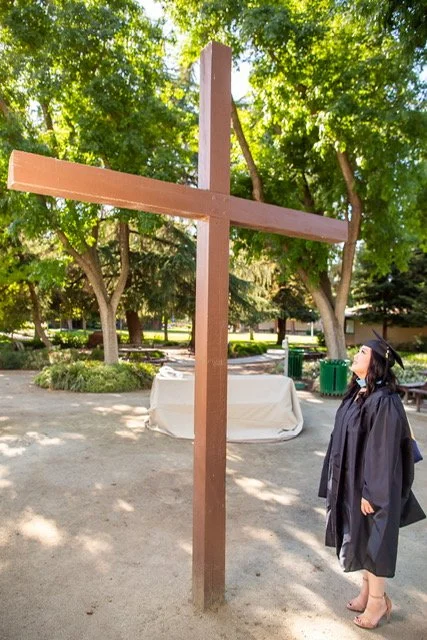Where Does Our Worth Come From?
By Pam Yang, LMFT
Have you ever felt like you weren’t good enough? Then on other days, felt as if you were too much? The pendulum often swings from one end to the other, depending on our circumstances. Many of us often feel undervalued, unimportant, or unseen. We may feel as though our situation is unique and that nobody truly understands us or sees our worth, and many of us feel disconnected or alone. For instance, are you a talkative extrovert surrounded by observant introverts? Are you the only female in a historically male occupation? Do you see problems differently than your counterparts or feel different or awkward? Are you a male who can be considered sensitive and empathic? If you are like me, you’ve had many experiences like these.
As I sit with my clients, I am increasingly seeing how many of us, so badly, want to be heard, seen, and understood. We want to be accepted, to belong, and to be loved. So many of us feel unworthy, and many of us measure our worth by society’s standards. We frequently use and see this worth barometer play out as people we’ve just met ask, “what do you do for work?” Many, who take pride in their career or occupation, excitedly ramble their job title, description, or duties. Then there is the statement, “tell me about yourself.” We often respond by listing our positions, roles, or accolades, often related to what we do. I, myself, have answered by saying, “I’m a mental health therapist” or “I have three children.”
As reflected in my response above, if our value does not come from what we do, we respond with a label of who we are to others. We are a wife/husband, we sit on a board of directors, we volunteer for this cause, we are a worship leader, we feed the homeless, we are a part of this group and so on. Even saying “I’m a Christian or follower of Christ” can signify who we are based on the assumed set of values, beliefs, morals, or ethics associated with that label. This reply can also imply what we do, meaning---we go to church, pray, read the Bible, and so forth. We often choose to respond with what we think others may find valuable, noble, and interesting or with what is a socially or culturally acceptable response.
Next, we find worth in external validation. We seek attention, admiration, or praise and want to be thought highly of. We want people to say good things about us. We hope that our hard work is recognized, and we hunger for appreciation and approval. The problem with this is that if we believe verbal affirmations denote our worth, we starve when we do not get it and start to question our value. Another problem with this is that we give people power to evaluate and determine our worthiness. We think, if they no longer praise us or recognize our gifts, talents, time, efforts, or sacrifices, then we are no longer significant, worthy, or important. We are so concerned about what people think about us, or how they will appraise us, that we do not see that we have put the gavel in their hands. Our worth declines with their lack of approval.
Furthermore, society asses our worth by how we look or how much we have in our bank accounts. Women are sold aging preventative serums or injections, men take supplements or shakes to build more muscle, and men and women alike are given promises in bottles or pills to treat hair loss. Do we meet the current, not to mention, ever changing beauty standards? What does society say we need to look like? What should the number on the scale be or the dress size be to measure up? Do we drive a Tesla or have the latest iPhone? How much can we bench press or how much do we make a year? What is our net worth? All of this is fragile or as King Solomon would say, “meaningless” because there will always be someone younger, richer, slimmer, taller, funnier, physically stronger and more.
Now, these things just in themselves are not terrible. Meaning, it is not an atrocity to identify ourselves by sharing what we do or what titles we hold. It is not wicked to want to be healthy physically or financially well off or to want appreciation or recognition. We won’t go to hell for having the latest iPhone, newest car, or a substantial bank account. It isn’t a bad thing to want to be a good steward of what God has given us, whether that be our bodies or finances. However, those things do not need to determine our worth, because what happens when we lose those titles? What happens when we lose money because of a relentless illness or get new wrinkles because we are aging? What happens when the admiration or praise stops, or when we obtain undesirable labels such as a widow or divorcee? Does that diminish us as human beings? Does every ounce of our worth go out the door?
Who placed these expectations on us and why do we accept them? Why do we rely on human validation when those giving or withholding it are just as imperfect as we are? Whether it be what we do, our titles, how we look, or how much money we have, Scripture gives us guidance on how to combat these superficial measures of worthiness. Ephesians 1 tells us that we are “chosen, adopted, redeemed, and forgiven” and we read that we are “made in the image and likeness of God” (Genesis 1:26). These labels offer so much more value, weight, and depth than what society gives us. The Bible says in 1 Samuel 16:7 “The Lord does not look at the things man looks at. Man looks at the outward appearance, but the Lord looks at the heart.'" Matthew 10:31 reminds us that we “are more valuable than many sparrows” and that we should seek to “store up treasures in heaven”, not things that can be damaged or taken away (Matthew 6:20).
Our worth and value does not need to come from our labels, positions, external validation, body image, and/or bank accounts. All these things are futile and fleeting. We do not take any of these things with us when we die. Yet, most importantly, God did not take these things into account when He sent us His one and only son to die for our sins. Jesus did not use any of those things as a measuring tool when he willingly laid down his life for us. We must then seek our identity and worth from God and focus on who He is and what He has done for us. Therefore, may we all be reminded and stand on the truth that our worth comes from who we are in Jesus Christ and not what society tells us.

